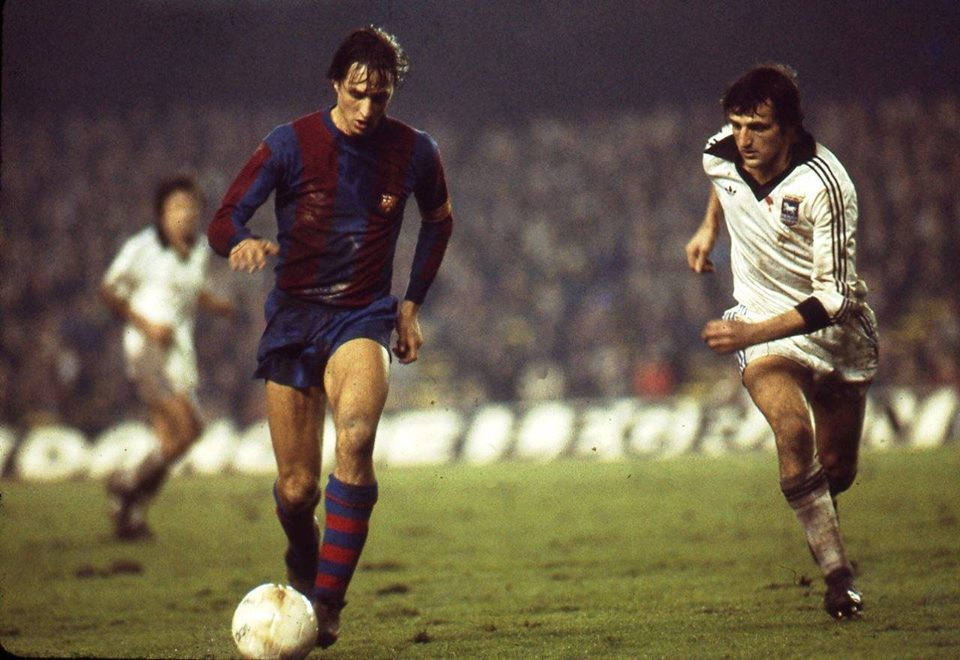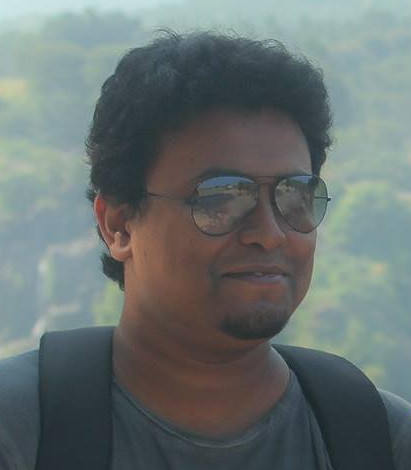Johan Cruyff – The Dutchman who stood up for Catalonia

©FC Barcelona Media
“Ideas are bulletproof” - Alan Moore wrote, and Johan Cruyff enacted it in real life. The legendary Dutchman passed away on Thursday, but his ideology lives on.
Eulogies flooded the social networks as fans came together to mourn Cruyff's demise. The sorrow transcended club and national loyalties, and it was apt for a man whose legacy is not confined to just a team. His legacy – as Jonathan Wilson puts it – is the whole of modern football.
From being a chaotic display of brutishness to being the most loved sport in the world – football has come a long way since its inception. In the early nineteenth century, the first question that the game faced was ‘Why to play football?’. But as the game slowly evolved from being an anarchic mob game (which was initially outlawed) to a means of morally edifying general public (for Christian missionaries and public school), the question changed to ‘How to play football?’.
Many over the years have attempted to answer that question, as football witnessed an eternal battle between romanticism and pragmatism, and only a few have found a resolution that has been widely accepted. Jimmy Hogan was one of the first.
Hogan despised the prevalent English school of footballing thoughts back in those days. He had a clear vision about how football should be played. Hogan believed in team work more than individuality. He believed in technique rather than brute force. He believed in passing the ball in a constructive way (preferably on the ground), rather than wild punts down the ground. Moreover, he believed in intricate movements and exchanges between the players, rather than chaotic form of the game that English adopted back then.
Hogan, Herbert Chapman, Marton Bukovi, Gustav Sebes, Bela Guttmann, and Helenio Herrera have all contributed in the process which has helped the game transform into its current state – however, the biggest evolutionary leap in modern football was designed by Rinus Michels and executed by Johan Cruyff.
The Dutchman is perhaps the only footballer who has had such an impact on the game, both as a player and a manager. He pulled Barcelona out of mediocrity and laid the groundwork for them to become the all-conquering side which we are witnessing today. La Masia, the famous Barca academy which has been churning out world class talents with almost eerie regularity, was his brainchild. He implemented Michels' Total Football philosophy at the club, and his successors – from Bobby Robson to Luis Enrique – have only ever needed to fine-tune it. That style of play has become Barcelona's and eventually World Champions Spain's identity in the last decade.
“Cruyff built the chapel, Our job is to maintain it,” Guardiola said during his time at the Catalan club.
Former Barcelona managers, who have succeeded Cruyff at the club, have helped in propagating the same possession-pressing based philosophy all across Europe. In fact, Mourinho's inverse school of thought was also a result of the Portuguese manager being rejected by Cruyff, in favour of Guardiola, for the Barcelona job back in 2008.
While his on-field contribution has been substantially discussed and dissected, it is perhaps his relatively-unacquainted off-the-field contribution which defined him as a human being.
Genius is often accompanied by a rebellious streak, and Cruyff went head-to-head against one of the most infamous names in the Spanish history.
After the Conservatives fell in 1936, and the leftist Popular Front came to power, Francisco Franco started the Spanish Civil War. Spain was divided into the Republicans/ Loyalists and the Nationalists, led by Franco himself. The Republican government received assistance from Soviet Union, while Nationalist rebels were aided by Italy and Germany.
Catalonia, along with Basque, were a free-thinking region in the north east of Spain and they fought hard against the Nationalists. However, they fell in 1939 and Francisco Franco came into power. The Republicans were either imprisoned or executed after they surrendered, and Catalonia's dreams of gaining autonomy has been suppressed since then.
Football has often been used as a political tool since its inception, and Real Madrid became Franco's emblem during his 39-year reign. While FC Barcelona became the voice for the culturally and economically oppressed Catalonians, Real Madrid represented the dictatorial central government. Los Blancos dominated the domestic league during Franco's reign, as the government ensured that they captured most of the footballing talent.
Before Alfredo Di Stefano signed for Real Madrid in 1953, he had already played three games for Barcelona and was about to join the Blaugrana. However, a “royal decree” from Franco ensured that the Argentinean moved to Madrid, where he won five European Cups and went on to become the most legendary name in the club's history.
Twenty years later, Real Madrid were looking to snatch another Barcelona target – Johan Cruyff. However, Cruyff turned down Real Madrid, who were the more attractive destination at that point, and opted to sign for Barcelona as he refused to associate himself with a club which had links with Franco.
"I remember my move to Spain was quite controversial. The president of Ajax wanted to sell me to Real Madrid, Barcelona weren’t at the same level as Madrid football wise, but it was a challenge to play for a Catalan club. Barcelona was more than a club," Cruyff later recalled in a documentary on channel TV3.
Few months later, Cruyff helped Barcelona to a 5-0 over Real Madrid at Santiago Bernabeu, and he was already a fan-favorite by then. However, it was another off-the-field incident, eight days before that game, which really endeared him to the Catalan population, and made him one of their own.
Danny Coster, Cruyff's wife, gave birth to their third son, and the Dutchman decided to name him after the patron saint of Catalonia St. Jordi, or better known as Saint George. Cruyff himself was far from being a theist, in fact he once famously said, "I'm not religious. In Spain all 22 players make the sign of the cross before they enter the pitch. If it works all matches must therefore end in a draw".
His move to name his son Jordi was his way of expressing his support to the Catalan people, and their fight against the oppressive government. The gesture was rebellious as well, since General Franco had outlawed every symbol of Catalan nationalism, and St. Jordi was one of them.
For his trouble – Cruyff had to fly his son back to Netherlands to register that name, since it was not allowed by the local authorities. It was a simple gesture, yet it meant a lot since it came from an 'outsider'.
Things have changed now, the balance of power in Spain, and La Liga, has shifted towards Barcelona, however something has remained unaltered – The Catalan struggle for independence. And when Cruyff passed away, at his home away from home, Catalonia lost one of her most-loved soldiers.
